Health Maintenance Services
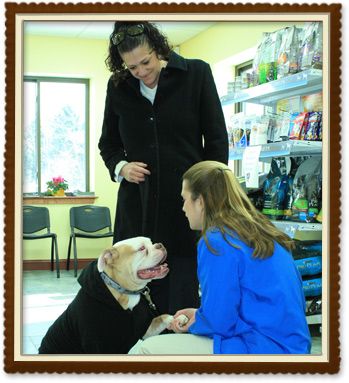 High Standards
High Standards
You love your pet. When your pet is sick, you want to find the best care possible. Dr. Amy Bright and the entire veterinary medical team at Tower Animal Hospital provide the best possible care for your pet in a compassionate and loving environment. From the latest ultrasound technology to advanced surgical procedures, your pet receives the highest level of care available.
To maintain our high standards, we offer a broad range of veterinary services to our patients based on disease prevention and wellness care. Through our preventive care program, your pet receives a comprehensive "nose-to-tail" physical examination in order to establish his or her own overall health profile. In addition, we offer a full range of treatments from traditional spays and neuters to more advanced diagnostic, medical, and surgical procedures. Test results are usually available immediately, allowing us to treat your sick or injured pet as quickly as possible.
Whether your pet is a playful puppy or a cat entering the golden years, he or she receives the best care possible at Tower Animal Hospital.
Internal Medicine
Sometimes one of the frustrations of dealing with a sick pet is that you cannot simply ask him or her what is wrong. Therefore, Tower Hill Animal Hospital has invested in the latest advanced diagnostic technology. When your pet is not well, we need to find out what is wrong. After performing a thorough examination, a series of diagnostic tests is often necessary in order to identify the medical condition.
Dr. Bright has a large amount of expertise in diagnosing and treating complex internal medicine cases such as kidney, heart, respiratory, immune-mediated, and endocrine diseases.
Your Pet's Nutrition
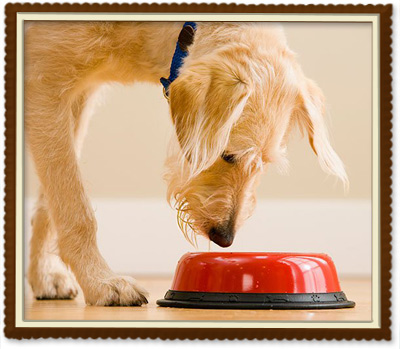 Pets are living longer, healthier lives than ever before and a big part of that is due to our expanded knowledge connecting proper nutrition with overall good health. In fact, nutrition is the biggest health variable controlled by a pet's caregiver.
Pets are living longer, healthier lives than ever before and a big part of that is due to our expanded knowledge connecting proper nutrition with overall good health. In fact, nutrition is the biggest health variable controlled by a pet's caregiver.
This fact is not lost on the veterinary team at Tower Animal Hospital. During your pet's comprehensive physical examination, Dr. Bright evaluates his or her body condition and gives recommendations based on what she sees.
Dr. Bright can assist you with information on proper serving size and other feeding strategies so your pet can maintain his/her optimal body weight and nutritional health. We can also help you navigate through pet food producers' claims so you can make the most informed nutritional food choice for your pet. For example, dogs and cats are healthiest when they eat the whole, natural foods we would eat ourselves: USDA-inspected chicken, turkey, and lamb, whole grain rice and barley, fresh fruits and vegetables, and Grade A dairy products.
Most cheap commercial pet foods contain filler ingredients and low-grade proteins. It is best to feed your pet a food that is denser, richer in nutrients, and without the added bulk. A high quality food provides more nutrition, with calories and fats formulated to fit the needs of your specific dog or cat.
Prescription Diets
Some pets have more serious nutritional challenges or chronic conditions that can benefit from a special diet. If your pet is diagnosed with a specific condition, we may recommend feeding a special prescription diet. Prescription diets benefit medical conditions such as liver disease, bladder and kidney stones, renal failure, food allergies, diabetes, and more.
Tower Animal Hospital carries a diverse inventory of prescription foods and high-quality nutritional products. If your pet requires a prescription diet we do not carry, we can easily order it for you.
Senior Care
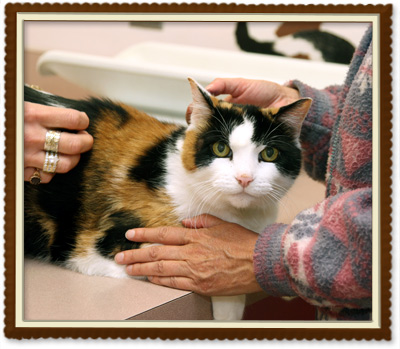 Congratulations! By taking the time to learn more about the special needs of your senior aged pet, you have taken the first step toward providing the best care for your friend in his or her golden years. As with humans, pets in their senior years (those of about six years of age and older) begin to go through a gradual reduction of their physical capabilities. However, this process can be slowed and managed through proper veterinary care thereby offering your beloved pet an extended period of vitality and good health. Preventive care tailored to your pet's age, lifestyle, risk factors, and other elements can help prevent common diseases or detect them at early and easily treatable stages.
Congratulations! By taking the time to learn more about the special needs of your senior aged pet, you have taken the first step toward providing the best care for your friend in his or her golden years. As with humans, pets in their senior years (those of about six years of age and older) begin to go through a gradual reduction of their physical capabilities. However, this process can be slowed and managed through proper veterinary care thereby offering your beloved pet an extended period of vitality and good health. Preventive care tailored to your pet's age, lifestyle, risk factors, and other elements can help prevent common diseases or detect them at early and easily treatable stages.
There is also an important role for you to play as your pet's primary caregiver. While you cannot control age related decline, you can influence your pet's activity level, living conditions, access to quality senior veterinary care, and daily nutrition. With your veterinarian's help, you can manage these factors in order to prolong your pet's good health, vitality, and increase his or her well-being, even as his or her pace slows a bit.
However, the best time to begin your pet's senior care program and recognize the need for a little extra TLC is well before age related conditions begin to set in.
Senior Wellness Exams
This semi-annual visit includes a routine physical examination, gives you an opportunity to discuss concerns regarding your pet's age, and may include specialized lab work to detect the early signs of disease processes. Our doctor tailors these exams and tests to your pet's age, breed, lifestyle, and physical condition in order to best meet his or her health needs. Because a mature pet's condition can change significantly in a short period of time, we recommend that families bring in their senior pets approximately every six months.
Dental Care
Unfortunately, dental disease is all too common in pets, especially older pets, and it represents a significant systemic health risk. Because bacteria in the mouth can enter the bloodstream and be passed to other organs, periodontal disease has been found to have associations with kidney, liver, lung, and heart disease. Additionally, pets in oral distress will often have difficulty or discomfort when eating. At Tower Hill Animal Hospital, we recommend regular dental exams and cleanings for all pets, but especially those in their senior years.
Skin Conditions
As with humans, aging causes your pet's skin to become more susceptible to a range of medical issues as well as become less elastic and heal more slowly. A range of dermatological conditions can cause changes, such as hair loss and new growths; therefore, we recommend regular examinations of your pet's skin and hair, especially if you notice itching, hair loss, or painful areas.
Home Care
During your pet's senior exam, we will discuss with you ways that you can help maintain your older pet's health at home. These suggestions include:
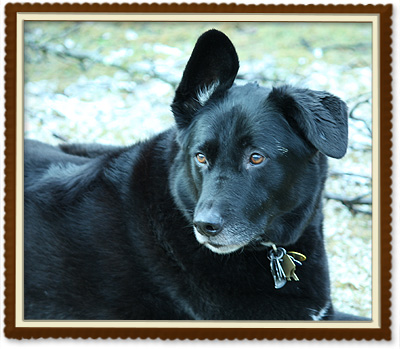
- Avoid excessive weight gain. We may recommend an exercise program as well as a special senior pet food.
- Keep your pet's living areas clean, dry, and warm at all times.
- If possible, regularly check your pet's mouth for reddened gums, loose teeth, or unusual swellings. Check eyes for redness, unusual cloudiness, discomfort, and discharge. Check ears for wax build-up, discharge, or unusual odors.
- Thoroughly groom and inspect your older pet's skin regularly. Look for lumps, bumps, and wounds.
- If your older pet's eyesight is impaired, avoid relocating furniture and changing his or her surroundings. Also, try not to drastically change your pet's daily routine.
- Any changes associated with eating, drinking, or elimination should be noted and discussed with us, as these may be manifestations of disease.
- Take your older pet for regular senior checkups, even if he or she seems to be well. It is always easier and less expensive to prevent a problem rather than treat a problem.
- Discuss your pet's diet. Many "treats" are high in sodium or fat; therefore, it is important to talk to us about the source(s) of your pet's daily calories.
Your older pet is a real member of the family. With proper care and regular testing, your loyal companion should be able to live a long and healthy life.
Glaucoma Prevention
Glaucoma doesn't only affect humans; your pet can develop this condition, too. Dr. Bright and her medical team at Tower Animal Hospital are skilled at identifying the early signs of this dangerous eye condition.
Glaucoma is a condition in which the fluid pressure inside the eye increases to a point where the optic nerve is damaged, causing loss of vision and blindness. Glaucoma is relatively common in animals and can develop as your pet ages - this is known as chronic glaucoma; or as the result of an injury or illness - this is known as acute glaucoma.
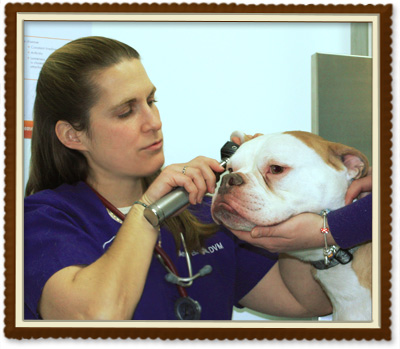 In many cases, glaucoma can progress quite rapidly, especially when it is the result of injury or underlying illness, and is considered an emergency situation.
In many cases, glaucoma can progress quite rapidly, especially when it is the result of injury or underlying illness, and is considered an emergency situation.
Symptoms to look for include:
- Redness in the eye
- Tearing or discharge
- Eye sensitivity to light
- Pain
- Cloudy-looking eye
- Bulging eyeball
Due to the severity and incidence of glaucoma, we recommend that your pet be checked regularly for this disease. A routine glaucoma exam is not only an effective screening measure for chronic and acute glaucoma, but can also help set a baseline measurement. Setting a baseline measurement is important because normal intraocular pressure (IOP) can vary between species, breeds and even individual pets.
At Tower Hill Animal Hospital, we use an instrument called a tonometer to measure the fluid pressure inside your pet's eyes. This is a noninvasive, simple procedure that should not cause your pet any pain or discomfort. Dr. Bright will apply a mild anesthetic eye-drop to ensure your pet is comfortable during the exam.